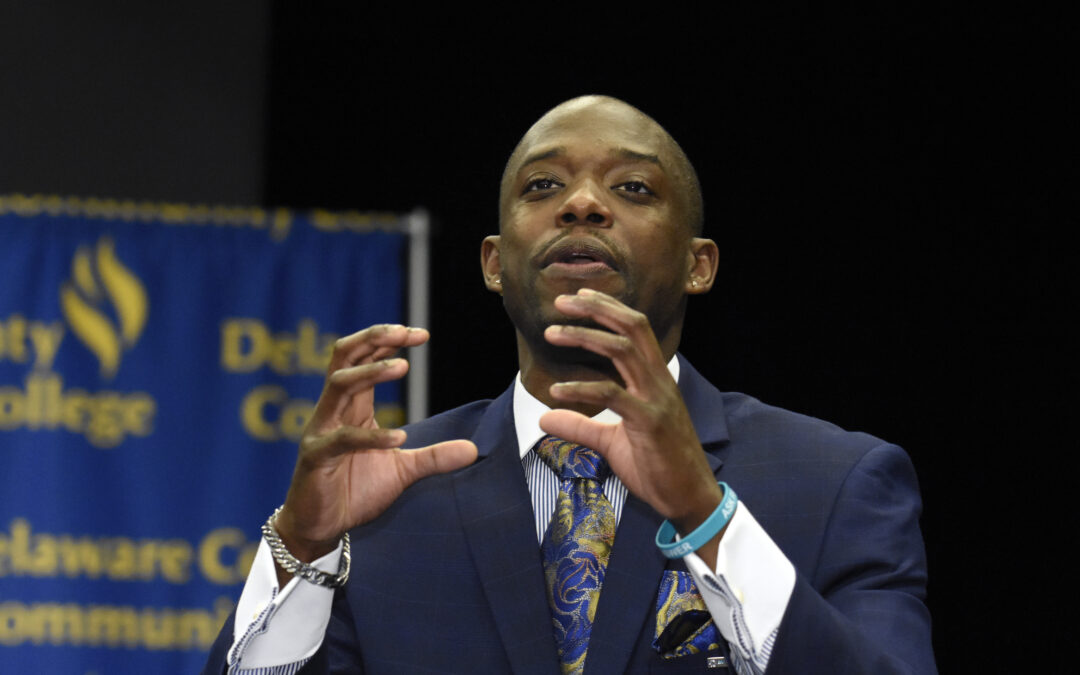This week we are honored to post a guest blog from the inspiring Freddy Shegog. He shared his experience of collegiate recovery and how it has transformed his life. Over to Freddy.
I entered college after some monumental life experiences changed the molding of my identity. Between the time I lived in addiction and now, I have gone from identifying as a homeless, dumpster-diving, non-hygienic man to a person who is asked to teach Sunday school, sponsor a child in Africa, become a co-parent, and attend events as a motivational speaker. Now I see a need for more funding of health programs at all schools, but especially at the college level, where there are many students like me, who are getting their educations back on track after experiencing addiction. I hold high academic honors and am on the Dean’s List with a 3.6 GPA. I have received various scholarships and founded The Message, a motivational speaking company. My success in recovery is only possible because of the support that was available to me through the help of many people, some of whom I met at Delaware County Community College.
I believe that all colleges should offer on-campus recovery programs that provide funding, peer specialists in recovery, education on resources, and addiction therapists on site. Many four-year universities offer this type of support; however, they are poorly funded. For example, West Chester University offers a Collegiate Recovery program. The sole purpose of the organization is to help students who have substance use disorder or are in recovery from other conditions like mental/eating disorders. West Chester University is one of many colleges nationwide that are being progressive in this new movement paired with the Association of Recovery in Higher Education.
Colleges are especially in need of this type of programming because when I am on campus, I regularly see students taking flyers of self-help group numbers from the public announcements board. That should not be shocking because according to the National Institute on Drug Abuse (Advancing Addiction Science), both amphetamine use and alcohol misuse in the form of binge drinking were all greater percent points higher than non-college students. Not to mention, the National Alliance on Mental Illness (NAMI) concludes that 25% of students have a diagnosed mental health condition or approximately 5 million individuals. A 2014 study from Dr. Alexandre Laudet and others demonstrated that students active in CRP have higher rates of retention, graduation, and grade point average than the average student.
It is time for colleges to realize health is wealth. Let us change the culture of these institutions of graduating quality, not quantity. America is currently in a student loan debt crisis of epic proportions. The funds to provide students with these needs are there but need to be reallocated to the right services. Funding for a pizza party of five students in recovery may seem minimal but that party may save the life of a person in recovery.
I had the blessing of traveling to five cities last semester speaking to students in recovery and conferencing. Through my travel, I realized our colleges must wake up and begin to address the needs of the students we educate. Through the hiring process of professors and university staff, I believe it is critical to look past the resume and ask potential candidates their thoughts on students with substance use disorder/mental health illness. Since we are in the worst epidemic this country has ever seen, doesn’t that require drastic measures? I want all teachers and students to be equipped with the best possible situations so we are graduating healthy candidates for employment. Every student who is affected by mental health or substance use disorder affects the foundation of the college. By funding the collegiate recovery programs immensely, the college will bear fruit that will last a lifetime.
Students in recovery are untapped resources that have gifts that can change the world. I hope that one day soon, students will not have to fight for addiction and recovery services, but that they will be as common as finding the bookstore. No student should be forgotten.
Frederick Shegog is an honors student at Delaware Community College, where he is majoring in communications. He founded The Message, a motivational speaking organization, and is a person in recovery; he can be reached for services at www.themessagellc.com.

